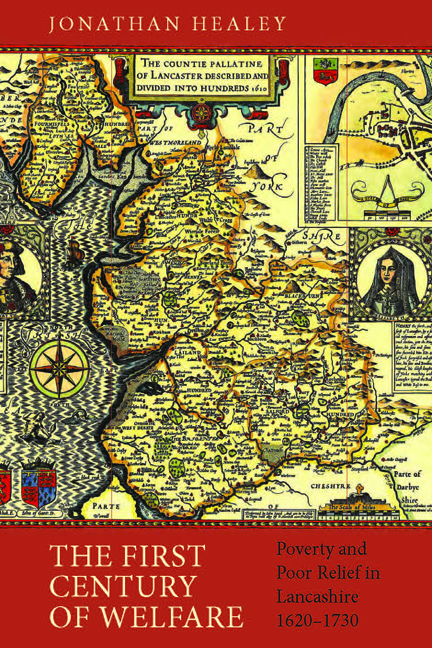Book contents
- Frontmatter
- Dedication
- Contents
- List of Figures
- List of Tables
- Preface
- List of Abbreviations
- Prologue: Becoming Poor
- Introduction: The First Century of Welfare
- PART I CONTEXTS
- PART II MARGINALITY
- 4 Marginal People: Descending into Poverty?
- 5 Resourceful People: Survival Strategies of the Lancashire Poor
- PART III MISFORTUNE
- Conclusion: Worldly Crosses
- Bibliography
- Index
5 - Resourceful People: Survival Strategies of the Lancashire Poor
from PART II - MARGINALITY
Published online by Cambridge University Press: 05 November 2014
- Frontmatter
- Dedication
- Contents
- List of Figures
- List of Tables
- Preface
- List of Abbreviations
- Prologue: Becoming Poor
- Introduction: The First Century of Welfare
- PART I CONTEXTS
- PART II MARGINALITY
- 4 Marginal People: Descending into Poverty?
- 5 Resourceful People: Survival Strategies of the Lancashire Poor
- PART III MISFORTUNE
- Conclusion: Worldly Crosses
- Bibliography
- Index
Summary
Sheweth, That your petitioner being about three score & ten yeares of age, formerly lived in good & credible condition, but aboute foure yeares since it pleased God to visit him with an ague & other sore sicknes, which continued on him aboute three yeares, in which time all his estate & meanes was spent, & consumed, & likewise being stricken with a palsie, soe that all his right side is uselesse, he now lyeth in a miserable condition not able to helpe himselfe in any thinge, his very bed being all rotten under him by reason of a laske that hath houlden him above three yeares, & his impotencie not being able to move himselfe: in this lamentable condition he is like to perish, unless some releefe be granted for him, for being destitute of both meanes & able frends to releeve him, he for a longe time this winter hath had noethinge but what pittifull neighbours have sent him, and likewise none are willing to be trobled to looke to him, & helpe him in this his loathsome condition, onely a kinswoman of his hath out of naturall affection thus far beene with him, but she beinge of small estate unable to releeve him & greeveinge to see his dayly miserie is discoraged & almost wearied out.
Petition of Thomas Nailor of Standish (13 April 1662)When Thomas Nailor fell seriously ill in around 1658, he did not immediately seek relief from the overseers.
- Type
- Chapter
- Information
- The First Century of WelfarePoverty and Poor Relief in Lancashire, 1620–1730, pp. 127 - 168Publisher: Boydell & BrewerPrint publication year: 2014



